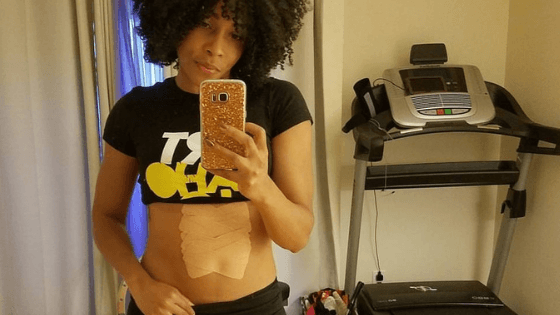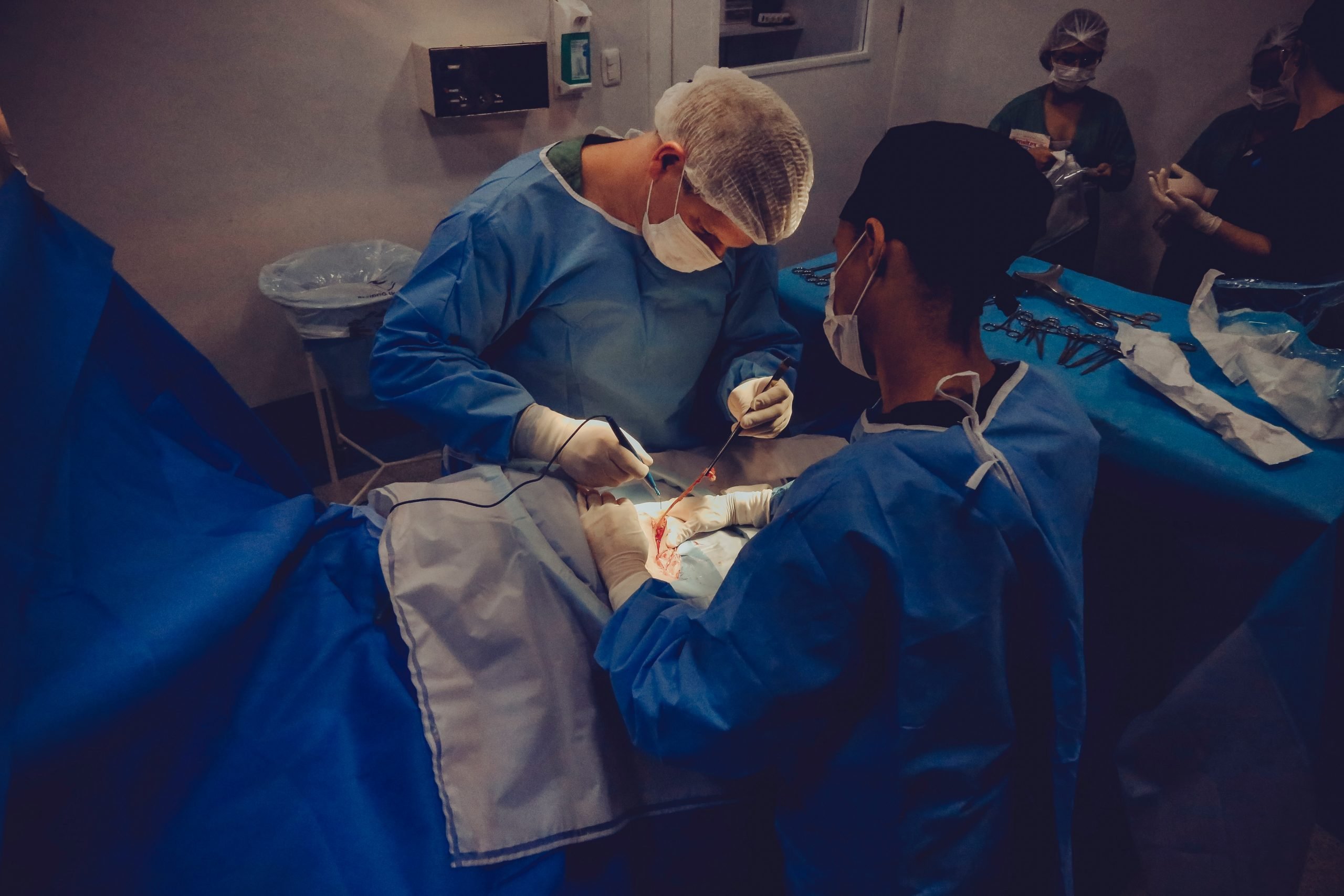Your Guide to Feeling Better Inside and Out
You may be struggling with issues like bloating, midsection weight gain, brain fog, and fatigue, and desperately seeking answers. These problems often point to gut health issues, which can be compounded by conditions like diastasis recti. In this article, we’ll explore these issues, offering practical tips to help you feel better from the inside out.
Understanding Bloating and Gut Health
Bloating isn’t just about feeling uncomfortable; it can signal deeper problems with your digestion. Your gut is home to trillions of microbes that play crucial roles in your health, from helping you digest food to supporting your immune system. So, taking care of your gut is vital for your overall well-being.
Bloating can be caused by various factors, including what you eat, how stressed you are, hormonal changes, and underlying health conditions. Women often find their bloating gets worse due to hormonal fluctuations during their menstrual cycle or pregnancy.
Bloating and Diastasis Recti
Diastasis recti, where the abdominal muscles separate, can significantly impact abdominal bloating. This condition commonly occurs during pregnancy or postpartum but can also affect individuals who engage in repetitive heavy lifting or have a genetic predisposition.
When the abdominal muscles separate, it creates a gap between the left and right sides of the rectus abdominis muscle. This separation weakens the abdominal wall, leading to a protruding belly appearance and decreased support for the organs in the abdominal cavity.
One consequence of diastasis recti is compromised intra-abdominal pressure regulation. Normally, the abdominal muscles assist in maintaining proper pressure within the abdominal cavity, aiding in digestion and preventing bloating. However, when these muscles are weakened and separated, they cannot effectively contain the contents of the abdomen, resulting in increased bloating and discomfort after meals.
Moreover, diastasis recti can alter the mechanics of digestion. The weakened abdominal muscles may inhibit proper movement of food through the digestive tract, leading to slower transit times and increased fermentation of undigested food particles. This fermentation process can produce excess gas, contributing further to abdominal bloating.
Managing diastasis recti bloating with diet and lifestyle factors
For individuals with diastasis recti, managing bloating involves not only addressing diet and lifestyle factors but also focusing on exercises that strengthen the deep core muscles to help close the separation and provide better support for the abdominal organs. Exercises tailored to diastasis recti can be beneficial in improving muscle function and reducing bloating.
Incorporating mindful eating practices, such as chewing food thoroughly and eating smaller, more frequent meals, can also alleviate bloating symptoms associated with diastasis recti. Additionally, wearing supportive garments or using abdominal binders may provide temporary relief by offering external support to the weakened abdominal muscles.
By addressing the underlying factors contributing to abdominal bloating, including diastasis recti, individuals can take proactive steps to improve gut health, alleviate discomfort, and enhance overall well-being.
Managing Bloating and Promoting Gut Health
Dietary Changes
Eat More Fibre
Foods like fruits, veggies, whole grains, and beans are rich in fibre, which helps keep your digestion regular and reduces bloating.
Try Probiotic fermented foods
Yoghurt, kefir, sauerkraut, kombucha and kimchi contain helpful bacteria that can improve your digestion and reduce bloating.
Stay Hydrated
Drinking enough water helps keep things moving in your digestive system and prevents bloating caused by dehydration.
Eat the rainbow!
Eat a wide variety of foods, especially colourful vegetables and fruits, seeds, nuts and legumes.
Include Prebiotics
Prebiotic foods are rich in dietary fibres that serve as fuel for beneficial gut bacteria, aiding in digestion and promoting overall gut health. Common examples of prebiotic foods are bananas, asparagus, jerusalem artichoke, garlic, onions, leeks, flax seeds and seaweed foods such as Nori, Kombu or Dulse.
Healthy fats
The healthy fats in nuts, seeds, and fatty fish provide essential fats that support both heart health and a diverse gut microbiome.
Avoid trigger foods
Steer clear of ultra-processed foods, fizzy drinks, and sugary foods. Listen to your body and note how your digestion reacts to certain foods. For eg onions and garlic are good prebiotic foods, but if they’re a bloating trigger for you, they may not be the best choice.
Mind-Body Strategies for Helping with Bloating
Stress Management
Practising relaxation techniques like deep breathing, meditation, or yoga can help reduce stress levels, which in turn can ease bloating. Get support and ask for help if you’re struggling to cope.
Get more and better sleep
Maintaining good sleep hygiene and addressing sleep disturbances can be beneficial for managing bloating and promoting overall digestive health. Poor sleep can disrupt normal digestive processes, potentially leading to slower digestion or incomplete digestion of food. Lack of sleep or poor sleep quality can also lead to increased levels of stress hormones like cortisol. Elevated cortisol levels can affect digestion, and sleep disturbances can alter the composition of gut bacteria, potentially leading to dysbiosis (an imbalance in gut microbiota).
Stay Active
Regular exercise not only benefits your physical health but also helps keep your digestion in check and your stress levels down. Incorporate strength training and lifting weights as well as exercise that gets your heart rate up.
Check your alignment
Your alignment (or posture) affects your digestion. This means how your body is ‘stacked’ when you stand, sit, and walk. For example, if you habitually suck in your tummy, or stick your chest out in front. If you squeeze or tuck your butt under, or walk with feet pointing out to the side rather than straight ahead. All these postural habits mean that your core and your digestion can’t work well and can cause bloating. Notice how you sit when you eat. Don’t slump or recline as this affects good digestion too. Sit toward the front of your chair, and keep your torso upright. Releasing and stretching the ab muscles is also important. Gentle twists as well as varied core exercise such as in MUTU will help. This helps align your torso and abdomen to aid digestion.
Look after your hormones
Eating well, getting enough sleep, and managing stress can help keep your hormones balanced, which may reduce bloating.
Use Antibiotics wisely
Only taking antibiotics when necessary and following your doctor’s instructions carefully can help protect your gut health from their effects.
Conclusion: Gut health is key to overall health
Paying attention to your gut health is key to overall health. By making changes to your diet, managing stress, exercising and noticing triggers, you can tackle issues like bloating and support your body’s natural balance. If you are also dealing with diastasis recti, this will likely feel worse towards the end of the day and after eating. The food you eat, regular exercise, managing stress and sleep and targeted exercise like MUTU will all help ease symptoms.












